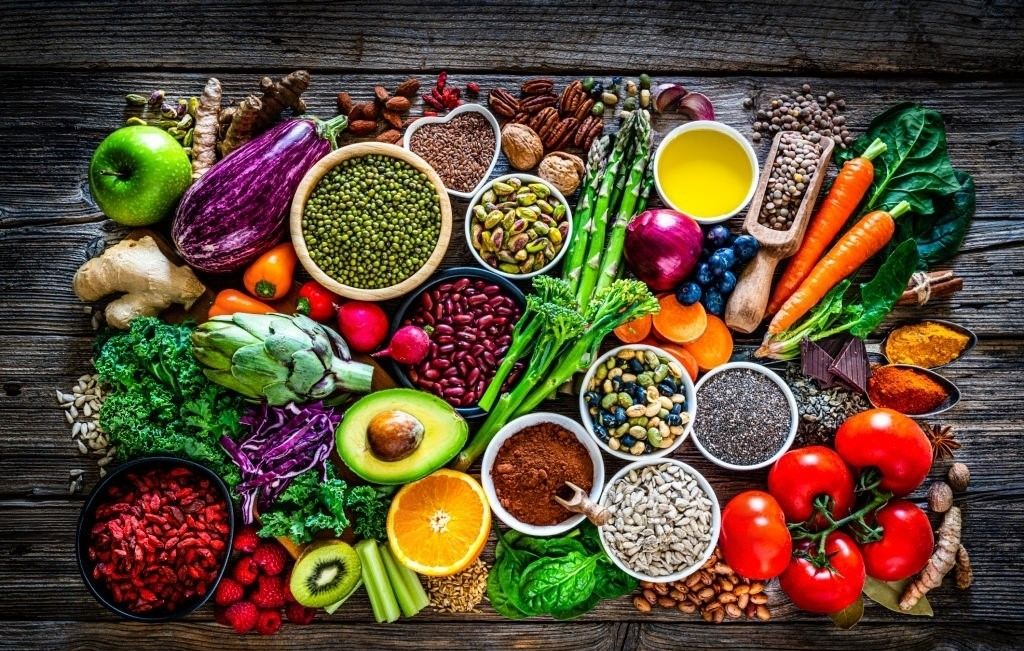Fiber: Why and How to Add This Essential Nutrient to Your Diet
You can enhance your overall well-being by integrating fiber-rich options such as fruits, vegetables, whole grains, legumes, and nuts into your daily meals, reaping these benefits.

In the world of nutrition, one nutrient often takes center stage for its remarkable health benefits: fiber. It's an essential component of a balanced diet that offers numerous advantages for your well-being. In this blog, we'll understand the importance of fiber, and you can take a significant step toward better health and well-being.
1.Unpacking the Fiber Phenomenon
Let's start by unraveling what fiber is and why it matters.
Fiber is a type of carbohydrate found in plant-based foods, such as fruits, vegetables, grains, legumes, and nuts. It's unique because, unlike other carbohydrates, it cannot be fully digested by the human digestive system.
Fiber plays a crucial role in various aspects of health. Its indigestible nature means that it passes through the digestive tract relatively intact, bringing about several benefits for digestion, weight management, and more.
Soluble fiber, found in foods like oats and beans, can help lower cholesterol levels by binding to cholesterol molecules in the digestive tract. Insoluble fiber, found in whole grains and vegetables, adds bulk to stool, promoting regular bowel movements and preventing constipation.
2. The Importance of Fiber for Digestive Health
Fiber and digestive health go hand in hand.
Fiber promotes a healthy digestive system by preventing constipation, supporting regular bowel movements, and maintaining gut health.
The bulk provided by fiber in the digestive tract helps prevent constipation by softening stool and making it easier to pass. Furthermore, fiber acts as a prebiotic, nourishing beneficial gut bacteria, which is essential for a balanced microbiome.
3. Weight Management with Fiber
Fiber is a valuable ally when it comes to managing your weight.
High-fiber foods are typically filling and can help control appetite, leading to reduced calorie intake.
Foods rich in fiber take longer to chew and digest, providing a feeling of fullness and satisfaction. This can lead to decreased calorie consumption during meals and ultimately support weight management. Incorporating fiber-rich foods like fruits, vegetables, and whole grains can contribute to a more satisfying and weight-conscious diet.
4. Fiber's Role in Blood Sugar Control
Fiber plays a vital role in stabilizing blood sugar levels.
Soluble fiber slows down the absorption of sugar in the bloodstream, preventing rapid spikes and crashes in blood sugar.
When you consume foods high in soluble fiber, like beans and oats, the fiber forms a gel-like substance in your digestive tract. This slows the release of sugar into the bloodstream, helping to maintain more stable blood sugar levels. Including fiber-rich foods in your diet can be an effective strategy for managing blood sugar levels.
5. Reducing Heart Disease Risk with Fiber
Fiber also has a protective effect on heart health.
High-fiber diets have been associated with a reduced risk of heart disease.
Fiber can help lower cholesterol levels by binding to cholesterol molecules and removing them from the body. Additionally, fiber-rich diets are often low in saturated fats and cholesterol, further promoting heart health.
SUMMARY
Fiber is a remarkable nutrient that offers a multitude of health benefits in digestive health, weight management, blood sugar control, and heart disease prevention. By incorporating fiber-rich foods like fruits, vegetables, whole grains, legumes, and nuts into your daily diet, you can enjoy these advantages and promote your overall well-being.
Fiber is not just a buzzword in the world of nutrition; it's an essential component of a healthy diet that can make a significant difference in your life. So, the next time you plan your meals, remember the importance of fiber and make choices that nourish your body from the inside out.
Jayti Shah is a Clinical Nutritionist with a master's degree in Clinical Nutrition and Dietetics. She is a member of the Indian Dietetic Association (IDA). Over the last 9 years, she has helped 400 clients in their clinical and weight loss journeys. She works with SocialBoat as a nutrition consultant.
At SocialBoat, we offer custom diet plans and guided workouts to help you achieve your goals in a 360-degree approach. Our gamified experience ensures that you don’t find workouts boring and we reward you for being consistent with your efforts.

REFERENCES
1.Brown, L., Rosner, B., Willett, W. W., & Sacks, F. M. (1999). Cholesterol-lowering effects of dietary fiber: a meta-analysis. The American Journal of Clinical Nutrition, 69(1), 30-42.
2. Howarth, N. C., Saltzman, E., Roberts, S. B., & McCrory, M. A. (2001). Dietary fiber and weight regulation. Nutrition Reviews, 59(5), 129-139.
3. Anderson, J. W., Randles, K. M., Kendall, C. W., & Jenkins, D. J. (2004). Carbohydrate and fiber recommendations for individuals with diabetes: a quantitative assessment and meta-analysis of the evidence. Journal of the American College of Nutrition, 23(1), 5-17.
4. Threapleton, D. E., Greenwood, D. C., Evans, C. E., Cleghorn, C. L., Nykjaer, C., Woodhead, C., ... & Burley, V. J. (2013). Dietary fiber intake and risk of first stroke: a systematic review and meta-analysis. Stroke, 44(5), 1360-1368.
